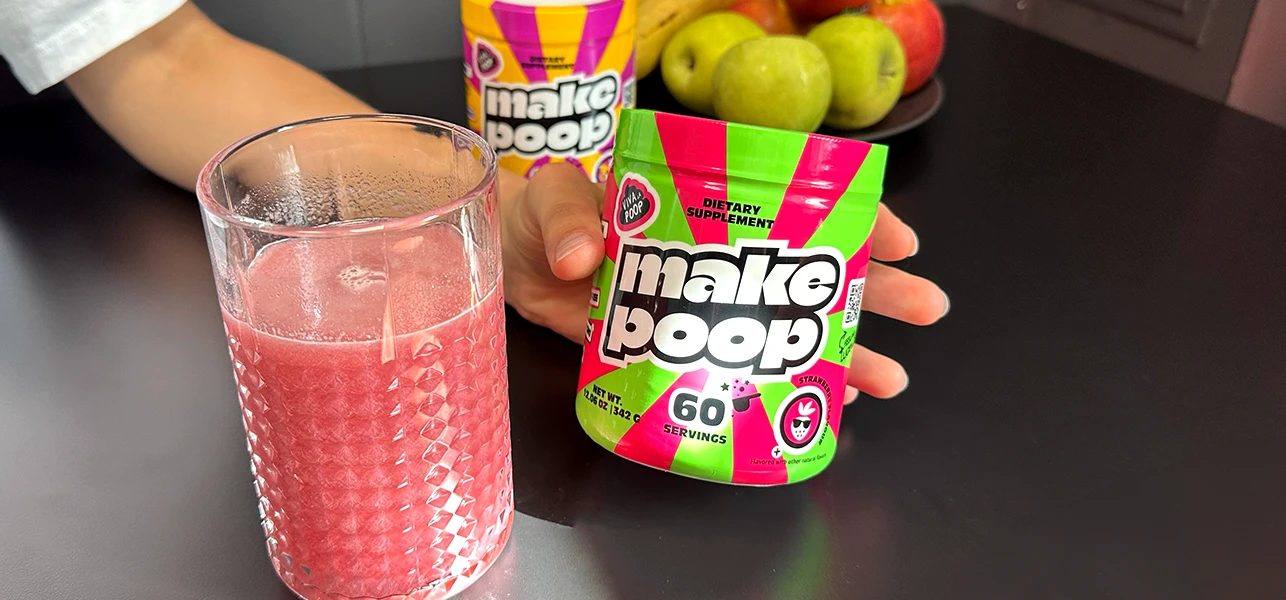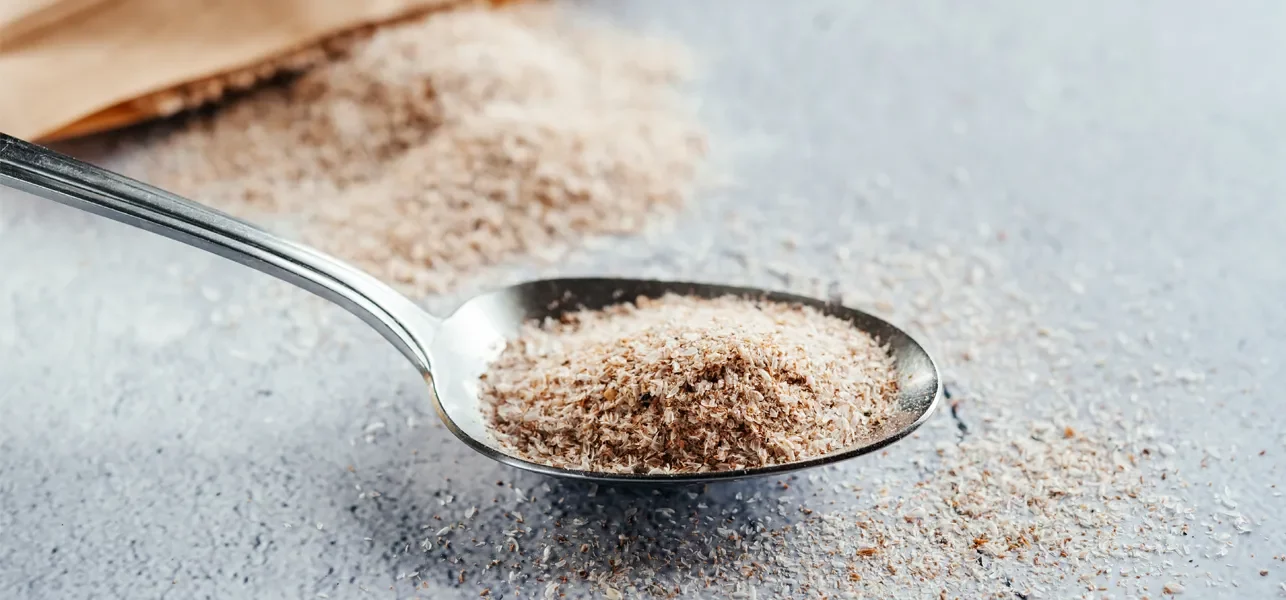Can Constipation Cause Headaches? Doctor Explains

Does a headache accompany your constipation?
Constipation is an uncomfortable occurrence. It can leave you feeling bloated, nauseous, and entirely frustrated.
If that wasn’t enough, sometimes you might find yourself nursing a headache, too.
When the two coincide, it can be completely normal. But in some cases, the two symptoms may share an underlying condition.
Sometimes making small lifestyle changes is enough to prevent it. But if constipation and headaches are due to your medical health, a doctor may offer different treatment options or provide medications.
If you are coping with repeat headaches and constipation, it may be time to speak to your healthcare provider.
Keep reading to learn more about the two symptoms, how they are linked, and how to prevent them.
Can Constipation Cause Headaches?
Constipation is the term given to infrequent or difficult bowel movements. If you are experiencing constipation, you might not have a bowel movement for a few days. The ones you do have may be uncomfortable and require excessive straining.

Advertisement
When you experience headaches and constipation together, they may be separate disorders. Often, the pair can result from not drinking enough water or eating a nutritious diet.
It’s possible that when constipation occurs, it can trigger a headache. The strain of constipation may make your head hurt, especially with excessive straining to have a successful bowel movement.
Some health conditions come with both headaches and constipation. Irritable bowel syndrome, chronic fatigue syndrome, and celiac disease are disorders of which constipation and headaches are common symptoms.
Celiac disease
Celiac disease is an autoimmune disorder causing intestinal inflammation when gluten (a protein found in wheat and other grains) is consumed. Damage to the small intestine can cause gastrointestinal symptoms like abdominal pain and discomfort.
Chronic fatigue syndrome
Chronic fatigue syndrome is a condition that makes you feel exhausted. It may cause headaches and constipation, excessive tiredness, trouble with memory, and body aches.
IBS
Irritable bowel syndrome is a disorder that affects the digestive system, with symptoms including stomach pain, bloating, diarrhea, and constipation. Several studies report a relationship between both IBS and migraines.
Medications
Certain prescription medications can trigger migraines and severe constipation. Rebound headache is the term given to headaches caused by medication overuse. Ask your doctor if your medication could be causing rebound headaches.
Why Does Constipation Cause Headaches?
As mentioned earlier, the stress of having constipation can trigger a headache. It’s an unpleasant experience, and if you’re facing it regularly, it’s naturally stressful.
Evidence suggests that mood disorders like anxiety and depression can prompt a headache. Those with chronic constipation and frequent gastrointestinal problems may suffer higher psychological distress and a higher prevalence of headaches.
How to Prevent Constipation
When there is no underlying health concern, you can treat and prevent constipation and headaches by leading a healthy lifestyle.
Generally, eating a balanced diet and avoiding refined and prepared foods can help alleviate constipation symptoms.

A diet rich in fiber helps maintain a happier gut. You can get enough fiber from whole grains, fresh fruits, vegetables, high-fiber breakfast cereal, beans, and pulses.
It’s also vital that you get enough fluids. Drink plenty of water to avoid dehydration.
A healthy mind can help relieve digestive issues. Reducing stress and managing your anxiety are beneficial tools. Adding regular exercise to your routine and practicing meditation and deep breathing can support stress management.
If lifestyle changes alone don’t cut it, there are supplements on the market to help your gut health.
Types of Headaches
A headache is a continuous pain felt in the head. They come in several forms, categorized by how they feel and what causes them.
Common primary headache types include:
Tension headache

Tension headache, or tension-type headache, brings mild to moderate head pain. It’s usually felt in the forehead with pain on both sides. Many describe it as a tight sensation around the head.
Sinus headache
A sinus headache feels like pressure not only in the head but in the face, notably the cheeks and nose. Other symptoms include nasal congestion – a stuffy nose feeling.
Migraine
A migraine is a severe headache. Migraine pain tends to be throbbing, usually on one side of the head. Migraine attacks can make you feel sick. Your vision may be disturbed, and you may become sensitive to light and sound.
Migraines are categorized into different groups, such as migraine with aura, migraine without aura, and silent migraine.
For some, changes in serotonin levels may be the culprit of a migraine.
What Can Cause Headaches?
You can usually tell the cause of a headache by its symptoms.
Many lifestyle factors can trigger them, but you can usually find relief by making some adjustments. For regular headaches, it’s best to speak with a healthcare professional to receive an accurate diagnosis.
Common triggers include:
- Alcohol use and hangovers
- Caffeine
- Anxiety and stress
- Dehydration
- Depression
- Strain from poor posture
- Not enough sleep or changes in sleep pattern
- Lack of nutrients
- Highly processed foods
- Skipping meals
Other causes may include acute sinusitis, ear infection, concussion, and certain medications.
More serious medical conditions associated with headaches include head injury, infection, overuse of medication, disease of the brain blood vessels, and tumors.
A Word From our RD
Constipation and headaches can occur separately or together.
In most cases, general lifestyle changes are enough to resolve the symptoms. It’s helpful to increase your water intake, eat a balanced diet, and manage stress.
Frequent headaches and migraine attacks alongside constipation may signify a medical concern that requires medical treatment.
Common health conditions that trigger the two include celiac disease, irritable bowel syndrome, chronic fatigue syndrome, and psychological disorders like stress and anxiety disorders.
Seek professional medical advice if you regularly suffer from headaches and constipation. A health care provider can diagnose any condition and suggest the best treatment options for you.
The Bottom Line
Constipation and headaches can sometimes transpire at the same time. It may be the result of dietary changes and a lack of fluids. Often, you can alleviate symptoms quite quickly by drinking water and eating more fiber.
However, several medical issues connect headaches and constipation. If you’re regularly suffering, consult your doctor to identify any underlying conditions.







Comments (0)